Archive for the ‘ICT’ Category
 |
11. April 2014 – 15:14 by Centre for E-Government
|
The international “Conference for E-Democracy and Open Government, Asia 2014″ will be held in Hong Kong on 4-5 December 2014. Submission deadline is 15 July 2014: www.donau-uni.ac.at/cedem-asia-14

– – – – – – – – – – – – – – – – – – – – – – – – – – – – – – – – – – – – – – – – – – – – – –
The Hong Kong City University, the Danube University Krems and the University of Michigan jointly organise CeDEM-Asia-2014 with the following tracks:
SOCIAL MEDIA AND CITIZEN PARTICIPATION
– Social media, citizen mobilization & engagement
– Sustainability of e-participation
– Social movements and citizen networks
– Online campaigning and elections
E-GOVERNMENT AND OPEN GOVERNMENT
– ICTs and their use for governmental transformation
– Open data, transparency, participation and collaboration in government
– Cultures of governance, access and openness, crowdsourcing for government
– Roles of policy-makers, industry professionals, and civil society activists in facilitating open governance
– Electronic identity
– Cross-border interoperability of e-government artefacts approaches and standards
DIGITAL RIGHTS AND INTERNET FREEDOM
– Internet governance
– Internet freedom and censorship
– Surveillance, privacy, and cyber-security
– Digital divide and literacy
FUTURE AND EMERGING TOPICS
– Smart cities, citizen science and urban informatics
– Internet of things and government transformation
– Social media-enabled crisis and disaster management
– – – – – – – – – – – – – – – – – – – – – – – – – – – – – – – – – – – – – – – – – – – – – –
Read the rest of this entry »
Posted in Events, ICT | No Comments »
 |
17. September 2012 – 13:49 by John Heaven (TuTech Innovation GmbH)
|
Every year, Bearing Point and Cisco Germany award a project the title of “the most innovative e-government project in the German-speaking world”. This year, the Federal State of Schleswig-Holstein was nominated for their project BOB-SH* in which they implemented DEMOS-Plan, our software for managing spatial planning consultations online. And they won!
So we’ve been feeling a little bit innovative for the past week too. After all, we worked closely with Schleswig-Holstein, giving technical support, training and telephone assistance to the wide range of stakeholders who will be working with DEMOS-Plan.
DEMOS-Plan is an online tool that closely follows the procedure laid down by German law for conducting consultations on a particular type of spatial plan (the “Bebauungsplan”). It allows statutory stakeholders to manage submissions internally by requiring one representative to sign off the submissions from different departments. These submissions can be linked to a particular paragraph of the planning document and/or the participant can draw on a map of the plan.
It’s great for the planning authority, because it saves them the trouble of sending paper copies of plans and collating all the submissions manually: instead, this is done automatically.
We think there are other countries in Europe where DEMOS-Plan could be useful and have been investigating this through the Parterre project. If you were at the PEP-NET Summit, you may have caught Francesco Molinari’s presentation of Parterre. (Hopefully you will also have noticed that the Summit was sponsored by Parterre!)
There will be more news on Parterre soon, so keep your eyes on the blog!
* Bauleitplanung Online-Beteiligung Schleswig Holstein
Posted in good practice, ICT, members, News, Tools, TuTech | No Comments »
 |
22. May 2012 – 10:09 by Asociacion Ciudades Kyosei / Pedro Prieto-Martin
|
 This week Avaaz, the “campaigning community bringing people-powered politics to decision-makers worldwide’, started the beta-testing of its community petitions platform, which allows anybody to launch a petition in a question of minutes. This new systems empowers anybody to make use of the streamlined processes and tools that have allowed Avaaz to grow its user base to more than 14.400.000.
This week Avaaz, the “campaigning community bringing people-powered politics to decision-makers worldwide’, started the beta-testing of its community petitions platform, which allows anybody to launch a petition in a question of minutes. This new systems empowers anybody to make use of the streamlined processes and tools that have allowed Avaaz to grow its user base to more than 14.400.000.
 Avaaz thus follows the recente move from change.org, the “social action platform that empowers anyone”, which just two weeks ago ‘absorved’ the Spanish platform “Actuable” and is now planning to translate its ‘petition making system’ to many other languages to really extend its reach worldwide.
Avaaz thus follows the recente move from change.org, the “social action platform that empowers anyone”, which just two weeks ago ‘absorved’ the Spanish platform “Actuable” and is now planning to translate its ‘petition making system’ to many other languages to really extend its reach worldwide.

Each of these platforms claims to have promoted petitions that forced very important political ‘actors’ to react: from Hillary Clinton to Presidente Morales, from Bank of America and Apple to Hilton Hotels.
 This is an interesting ‘tectonic’ move in the realm of (e)Participation, which we should follow closely. It is, additionally, much related to the discussion about “Sticks and Carrots” we hold in Pep-Net’s blog a year ago.
This is an interesting ‘tectonic’ move in the realm of (e)Participation, which we should follow closely. It is, additionally, much related to the discussion about “Sticks and Carrots” we hold in Pep-Net’s blog a year ago.
We were then reflecting about questions like: is it better to praise “good deeds” of Corporation and Politicians, or is it better to warn and punish them when they “misbehave”? Why not both things at the same time?
Anita Roddick, the founder of the Body Shop, reported that once an executive of Shell told her: “We don’t fear regulation, we only fear consumer revolt”
Well: it is clear now that consumer and citizens are getting better at revolting and exerting pressure. Change is happening out of anybody’s reach, and (e)Participation is slowly “getting teeth”, which soon will be able to hurt enough as to influence behaviour: if you do not want your brand reputation to get ruined… you better behave!!! And this applies to corporation as much as political actors.
The promise of a ‘Future Goverment’ that becomes FAST (flatter, agile, streamlined and tech-enabled) -which was delivered in the last World Economic Forum- starts to be truth. But, for sure, it is not government who is promoting it. It is NGOs and CSOs. It is citizens.
It is important to note that the technology behind these petition plattforms is very, very simple. The concepts and processes of use are also not sci-fiction. But for sure, this kind of powerful, sustainable and social minded (e)Participation was rarely promoted by our Governments’ Innovation Support Actions. Instead of an impact oriented eParticipation research, put at the service of Civil Society, a Government- and Academia-centred approach was preferred. And thus eParticipation has just advance by little steps.
It is a pitty, because these platforms are now out there, growing. They were created with less (or ‘no’) involvement of eParticipation researchers. And that means that we do not have easy access to the very valuable information about eParticipation that these systems are generating (about pattern and reasons of use, users’ demographics, typologies of action, success rates, etc).
We should reflect about this. We have not so many more opportunities to miss. The field is developing faster and faster. Do we want to be part of it?
Posted in good practice, ICT, inclusion, Tools, Trends, Visions | No Comments »
 |
26. August 2011 – 14:38 by Asociacion Ciudades Kyosei / Pedro Prieto-Martin
|
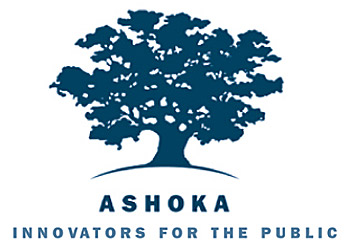 Ashoka Foundation, with the support of Google, has launched Citizen Media: A Global Innovation Competition. Well, it was launched more than one month ago, but you still have 19 days (till Sep 14th) to present a proposal.
Ashoka Foundation, with the support of Google, has launched Citizen Media: A Global Innovation Competition. Well, it was launched more than one month ago, but you still have 19 days (till Sep 14th) to present a proposal.
This competition is very related to the e-Participation field, as Ashoka considers it as linked with the fields of “Citizen participation” and “Journalism”.
Ashoka and Google are seeking innovations that will allow global citizens to have a voice and the information they need to make change. The competition welcomes solutions that work with any communication or information technologies—not just the Internet. The contest is open to solutions around the world: you ara allowed to present you entry in English, Spanish, Portuguese, French, Arabic, Thai, Indonesian, Mandarin or Japanese.
Some of the benefits mentioned for participants are:
- Connect to a global online community that supports the impact you are making, or seeking to make, on the ground.
- Gain visibility with our community and our competition partner, Google.
- Position yourself as a candidate for an Ashoka Fellowship within our News & Knowledge program.
 The prizes of the competition are:
The prizes of the competition are:
- One of four US $5,000 cash prizes in unrestricted funding to boost your project.
- Consideration for an Ashoka Fellowship—complete with a three-year living stipend, international recognition, and access to a network of systems-changing social entrepreneurs.
Have a look at the webpage of Ashoka Changemakers for more details.
PS: By the way, there is an entry for our Kyopol System. We would be more that pleased if you’d like to give us any feedback about our proposal.
Posted in calls & tender, ICT, inclusion | 1 Comment »
 |
28. July 2011 – 16:49 by Asociacion Ciudades Kyosei / Pedro Prieto-Martin
|
“The e-(R)evolution will not be funded. An interdisciplinary and critical analysis of the developments and troubles of EU-funded eParticipation” is the title of a paper that our association recently wrote as part of our research and knowledge dissemination efforts. The article is meant to be properly published soon, but some bureaucratic issues have delayed its release more than we can wait.
Because this paper needs to be read and, more important, discussed while its analyses are still current.
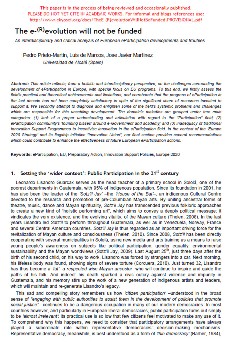 Thus, we have decided to make it provisionally available through PeP-NET. To start such a conversation, what better place than PeP-NET, the Pan European eParticipation network?
Thus, we have decided to make it provisionally available through PeP-NET. To start such a conversation, what better place than PeP-NET, the Pan European eParticipation network? 
We have spent many hundreds of hours researching and writing the paper, as we struggled to make sense of the developments and “under-developments” of eParticipation in the last ten years.
Our appraisal is based on an extensive and interdisciplinary analysis of distinct relevant sources, which included the most recent reports, articles and literature reviews dealing with eParticipation research, practice and theory, as well as projects’ deliverables and evaluations, related databases, and our direct examination of eParticipation systems.
We had to resort to a very varied bunch of disciplines (from history and medicine to Mayan performing arts; seriously!!  ) to be able to achieve a comprehensive understanding of the field’s challenges… and to make a compelling exposition of them.
) to be able to achieve a comprehensive understanding of the field’s challenges… and to make a compelling exposition of them.
The paper ended up being “quite controversial”, as our assessment of eParticipation came to suggest that some of the problems that have hampered its progress have a systemic, overarching character: that kind of ‘elephant in the living room’-issues whose very existence tends to be denied because of their complexity or the embarrassment they cause and, as a result, cannot normally be acknowledged or discussed, let alone get properly sorted out.
Examples of the “embarrassing questions” the paper poses are:
- How can it be that after 10 years… all relevant ‘agendas’ of eParticipation research are still reported as underdeveloped?
- And how can it be that even the most basic questions –for example: the relation of Participation and eParticipation, or the understanding of the dual nature of eParticipaton as something that can be driven by authorities or by citizens themselves– remain unsolved?
- More than 187 millions of Euros were invested in the last ten years to promote experimentation in the field, so… where are the results? Where are the breakthroughs and the research milestones? Can we feel satisfied with just some “vague confirmations” of ideas that 10 years ago could already have been easily guessed?
Through the paper, we have done our best to constructively diagnose eParticipation and to propose some treatments for the field’s maladies. But our perspective and understanding are necessarily limited: the real “treatment” for those problems would require a reflection process that involves the whole eParticipation community.
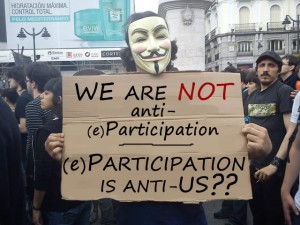 We see this paper as an urgent “call for self-reflection” and consider it a “MUST READ” for anyone involved in European eParticipation: from the officials working at EC’s Directorate for Information society and Media, to the researchers, practitioners, NGOs, public workers, citizen associations… and even any interested European citizen.
We see this paper as an urgent “call for self-reflection” and consider it a “MUST READ” for anyone involved in European eParticipation: from the officials working at EC’s Directorate for Information society and Media, to the researchers, practitioners, NGOs, public workers, citizen associations… and even any interested European citizen.
Therefore, we would like to encourage all our PeP-NET friends and in general all people with interest in eParticipation… to have a look at the paper during this nice summer weekend. 
Anyone who feels “touched” by any of the paper’s claims and argumentations… should speak up and comment to this post. It doesn’t matter if it is to support, extend or complement our asseverations, or to oppose, challenge or further qualify them… please, share your views.
PeP-NET was meant to be a HUB for the conversations around eParticipation. So… let’s discuss. It is important that the issues we showed –be them real or imagined– are talked about, and possibly acted upon.
The environment where we operate is moving. Moving faster and faster. And in the context of the ‘Europe 2020 Strategy’ and its flagship initiative “Innovation Union”, which aims to renew EU’s “Research and Innovation Funding Programmes”, the most important question we need to answer is: “What do we do now??”
For sure, we could keep pretending that there is NO elephant in the living room. Stay in our “academic” Ivory Tower, and just continue doing as we did so far… while we wait for the “barbarians of eParticipation” to arrive, change the democratic landscape by really integrating ICT in governance… and make fools of all us. PeP-NET subscribers included. 
But in our association we want to believe that we, the European eParticipation Community, could do much better than that.
So… no more to say!! Thank you very much for your attention. We hope some of you enjoy reading of our paper and some exchange of ideas can happen afterwards.
—– ADDITION: A CONCEPTUAL MAP SUMMARISING PAPER’S KEY FINDINGS —–
Several people asked for a “summary” version of the paper. Here you have a JPG image (2,5 Mbytes) displaying a Conceptual Map that summarises the paper’s key findings.
I recommend you to save the file first, and then open it with an image editor (like Office Picture Manager) to watch it. It’ll be more easy for you to zoom in and out in the different parts of the image.
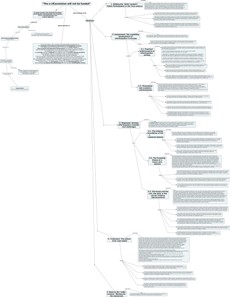
Posted in ICT, Projects, Tools, Trends, Visions | 24 Comments »
 |
9. June 2011 – 12:11 by Asociacion Ciudades Kyosei / Pedro Prieto-Martin
|
News from the Asociación and our main project (english version at the bottom  ).
).
—
Como resultado del nuevo escenario creado en España por movimiento cívico “15M”, que ha inundado las plazas de las principales ciudades españolas (y algunas del extranjero) con sus demandas de una “Democracia Real YA”, en la Asociación Ciudades Kyosei hemos decidido “ponernos las pilas”, para producir cuanto antes una versión alpha del sistema “Kyopol” (aka. “Ciudad Simbiótica”), que podamos poner al servicio de todos los procesos de activación cívica y movilización social que deberían ahora darse, barrio a barrio, en todas las ciudades de España.
Ello nos ha demandado un un cambio de actitud: se hace necesario establecer un equipo más amplio, repartir responsabilidades… y así crear algo útil cuanto antes.
Pues bien, tras un par de reuniones muy productivas ayer martes y el pasado domingo… ¡¡el proceso de creación del Sistema Kyopol se considera “oficialmente iniciado”!!
El Sistema Kyopol (aka. “Ciudad Simbiótica”) fomentará la Implicación Cívica y la “Activación Ciudadana” en los ámbitos municipal y regional. Permitirá a los ciudadanos informarse, formarse y colaborar unos con otros en la mejora de su entorno vital, trabajando en aquellas temáticas que cada uno considere importantes.
No sólo eso: buscaremos que usando el Sistema Kyopol… ¡¡podamos pasarlo “de miedo”!! Que sea una experiencia tremendamente placentera, incluso divertida, eso de unirte a otras personas para implicarte en el “cuidado de lo publico”.
Para la Asociación Ciudades Kyosei… ¡¡haber logrado alcanzar este hito es algo sensacional!! Queremos agradeceros a todos los simpatizantes de la asociación el apoyo que nos habéis brindado hasta ahora y advertiros… ¡¡que ahora es cuando empieza el trabajo de verdad!!
Nuestro trabajo se desarrollará a partir de ahora mediante la estrecha colaboración de dos equipos:
- Primeramente, el “Grupo impulsor” -compuesto por informáticos, investigadores y personas vinculadas con la participación- construirá prototipos del sistema y establecerá las metodologías, los recursos participativos y los arreglos institucionales que formarán parte del sistema.
- En segundo lugar, el “Colectivo de pioneros”, integrado por representantes de todos los colectivos que usarán el sistema (desde ciudadanos y asociaciones de vecinos a políticos y técnicos municipales, pasando por medios de comunicación, ONGs, sindicatos y partidos políticos y, por supuesto, ahora también movimientos sociales del estilo 15M, DRY y demás bichos que éstos engendrarán en los próximos meses), que nos ayudarán probando los sucesivos prototipos del sistema, y proporcionandonos feedback en relación a las funcionalidades y procedimientos que propongamos.

En base a ello, podremos disponer de una versión Beta del sistema, lo suficientemente madura para iniciar proyectos piloto. Primeramente en el entorno de Madrid -que es de donde provienen la mayoría de nuestros Pioneros”-, y posteriormente en todas las regiones de España, y finalmente en el ámbito Latino-Americano y Europeo.
Si tenéis interés en formar parte del “Colectivo de Pioneros”, por favor contáctanos cuanto antes.
Planeamos realizar un acto de presentación del proyecto a todos sus potenciales interesados, en las instalaciones de la Universidad de Alcalá. ¡¡Os invitamos a tod@s a que nos acompañéis en el evento!!
Os mantendremos informados (podéis seguirnos en la web de la asociación, facebook o twitter).
—–
Urged, and inspired, by the emergence of the #SpanishRevolution, which has crowded the main squares of many spanish cities (and several foreign ones too!) to demand a “Real Democracy NOW!”… we have tried to accelerate our association’s projects.
And… after a couple of very productive meetings on Tuesday and on last Sunday … the construction of the “Kyopol System” has been “officially started”!
Kyopol (aka. “Symbiotic City”) will promote “citizen activation” and civic involvement in the municipal and regional levels. It will allow citizens to inform themselves about civic issues, “educate” themselves on how to “participate”, and collaborate with each other to improve their shared living environment, by collaboratively working on those issues that each one considers important.
Actually, our aim is that by using Kyopol we citizens will be able to experience a great deal of fun (and proudness!). Isn’t that the way that “meeting fellow citizens to jointly care and work for the common good” should taste?!
For the Asociación Ciudades Kyosei… having reached this milestone is something sensational! We want to thank all supporters of the association for the help we have received so far, but also warn them… that the real work is about to start!!
Our work will be developed through the collaboration of two teams:
- First, the “Core Team”, which is mainly composed of developers and citizen participation’s researchers, practitioners and stake-holders, who will work together to construct prototypes and establish the participatory methodologie,s the formative resources and the institutional arrangements that will surround Kyopol.
- Second, a “Pioneers Team”, that integrates representatives of all groups that will use the system (citizens, neighbourhood associations, governments oficials, politicians, NGOs, media, social movements, etc…). They will act as “Alpha testers”, and will help us testing our prototypes and providing feedback in relation to the functionalities and the participatory methodologies and resources we propose.

Based on this work, we will construct a Beta version of the system, mature enough to initiate pilot projects. These will first first in the surroundings of Madrid, where most of our Pioneers are located, and will afterwards get extended to several regions in Spain, and finally to the wide Latin American (and European) environments.
The next milestone we are planning is a meeting at the University of Alcalá, where the project will be presented to all potential stakeholders. Collaborative work will start immediately afterwards.
We’ll keep you informed (and you can follow us on our website, facebook or twitter).
Posted in ICT, members, Projects, Tools, Visions | No Comments »
 |
20. May 2011 – 14:18 by Fraunhofer ISI (Ralf Lindner)
|
Can political communication via the Internet and e-participation contribute to the emergence of aEuropean public sphere?
Workshop at the European Parliament, Brussels, 26 May 2011, 9-13 hrs, Room JAN 4Q1.
The workshop is meant to reflect on the potentials and realistic prospects of Internet-based applications to contribute to the democratic practices of the evolving political system of the European Union and the formation of a European public sphere. There are examples of cases where positive effects of the Internet concerning the political process are visible, including e-consultations, e-petitions and other initiatives to encourage citizens’ participation. However, it becomes clear that not all of the potentials of the new technology have been realised so far and that apart from technical aspects, there are different legal, political and social issues which need to be addressed in the future.
Programme:
9.00 Registration
9.30 Welcome address by STOA
Introductionand presentation of STOA project by Dr. Georg Aichholzer, ITA, Vienna
9.45 Session 1: A European e-public: Chances and restrictions of an Internet-mediated public opinion in Europe
Prof. Stijn Smismans, Cardiff University, Cardiff Law School.
Dr. Sandra González-Bailón, University of Oxford,Oxford Internet Institute and Nuffield College.
10.30 Inquiryby Members of Parliament and discussion
11.00 Coffee Break
11.30 Session 2: E-participation in Europe: Internet-based political participation as a pacemaker for a European public
Jeremy Millard, Danish Technological Institute, Denmark.
Dr. Andy Williamson, Hansard Society, Digital Democracy Programme,London.
12.15 Inquiryby Members of Parliament and discussion
13.00 Endof workshop after closing remarksby Dr. Georg Aichholzer, ITA, Vienna.
The workshop is free of charge, but you need to register in order to be able to enter the European Parliament.
To register please send an e-mail to Kerstin.Goos@isi.fraunhofer.de until 23 May 2011 indicating your name, date of birth, nationality, city of residence and ID or passport number.
Further information: Prof. Dr. Ralf Lindner, tel. +49 721 6809 292; Dr. Theodoros Karapiperis, tel. +32 2 28 43812
The workshop is organised by Fraunhofer ISI.
For more information on the project see:
STOA-Project E-public, e-participation, e-voting in Europe: Chances and limits of an Internet-enabled European democracy
Posted in Debate Europe, Events, ICT | No Comments »
 |
3. February 2011 – 00:06 by Francesco Molinari
|
On January 31st, a group of academic researchers, city managers and consultancy professionals was gathered into a single-day expert advisory meeting led by IPTS, the European Commission’s Institute on Prospective Technological Studies, and Eurocities, the network of major European cities, to discuss and evaluate the preliminary results of an exploratory study carried out jointly by the two organisations over the past couple of years.
The study, called EXPGOV, has by now collected a huge amount of evidence on the most likely areas of impact of ICT on governance, based on a survey of about 60 out of 446 EU cities with 100,000 inhabitants or more from all 27 Member States (plus Croatia and Switzerland), and later on the preparation and analysis of four detailed case studies (Barcelona, Berlin, Manchester, and Tallin), the results of which were presented for the first time during the meeting.
In my opinion, the big merit of this effort is to have raised the issue of assessing ICT impact on middle- and large- sized city governance on a systematic basis in Europe – probably for the first time ever, as strange as this may appear. In that respect, it is a preliminary answer given to the key questions: “Where do we stand? Where should we go?” and also the photograph of work in progress, showing a fair deal of convergence between old and new Member States, south and north of Europe, relatively larger and smaller communities, both in terms of problems tackled with and solutions offered to approach them. Particularly the survey questionnaire (which was anonymously filled out by several kinds of stakeholder, including city managers or their delegates) provided evidence of a number of “flagship projects” that must have been making the difference in a number of European city contexts.
Read the rest of this entry »
Posted in ICT, News, Trends | No Comments »
 |
2. December 2010 – 11:49 by Centre for E-Government
|
On authors’ demand, CeDEM11 announces an extended deadline for submissions:
16 January 2011
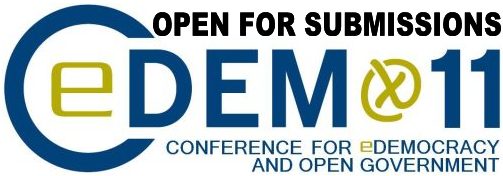
Conference for E-Democracy and Open Government
5-6 May 2011
Krems, Austria
www.donau-uni.ac.at/cedem
Tracks
- E-Participation
- Open Data and Open Access
- Open Government
- E-Voting
Submissions
- Extended deadline: 16 January 2011
- 12 pages maximum
- Double-blind peer review
Conference Proceedings
- Print version and
- OA online version (eBook).
- Best papers will be published with the OA eJournal JeDEM
Detailed Information
Posted in Events, ICT, open data | No Comments »
 |
8. September 2010 – 22:40 by Institute for Electronic Participation
|
 According to the latest UN E-Participation Index measurement, the majority of South Eastern European countries improved their global standing regarding the quality and usefulness of information and services for the purpose of engaging its citizens in public policy making through the use of e-government programs. Nevertheless, e-participation in SEE countries is still falling behind their e-government developments. An overview of current e-participation situation in SEE within government domain will be presented, highlighting key elements needed for strengthening e-democracy in the region. One of them will be focused on non-governmental organizations and civil society e-participation experience (e.g. on-line Citizen’s forum) needed for shaping inclusive and citizens oriented e-government policy.
According to the latest UN E-Participation Index measurement, the majority of South Eastern European countries improved their global standing regarding the quality and usefulness of information and services for the purpose of engaging its citizens in public policy making through the use of e-government programs. Nevertheless, e-participation in SEE countries is still falling behind their e-government developments. An overview of current e-participation situation in SEE within government domain will be presented, highlighting key elements needed for strengthening e-democracy in the region. One of them will be focused on non-governmental organizations and civil society e-participation experience (e.g. on-line Citizen’s forum) needed for shaping inclusive and citizens oriented e-government policy.
Link to video lecture: https://videolectures.net/forum2010_delakorda_meis/
Link to presentation: https://www.inepa.si/images/stories/mapping_edemocracy_see_region_delakorda.pdf.
Lecture presented by Simon Delakorda, M. Sc., executive director, Institute for Electronic Participation (INePA) and member of the Central and Eastern Citizens Network eParticipation expert group.

Posted in Events, experince, good practice, ICT, members, News, Projects, Tools, Trends | No Comments »





















